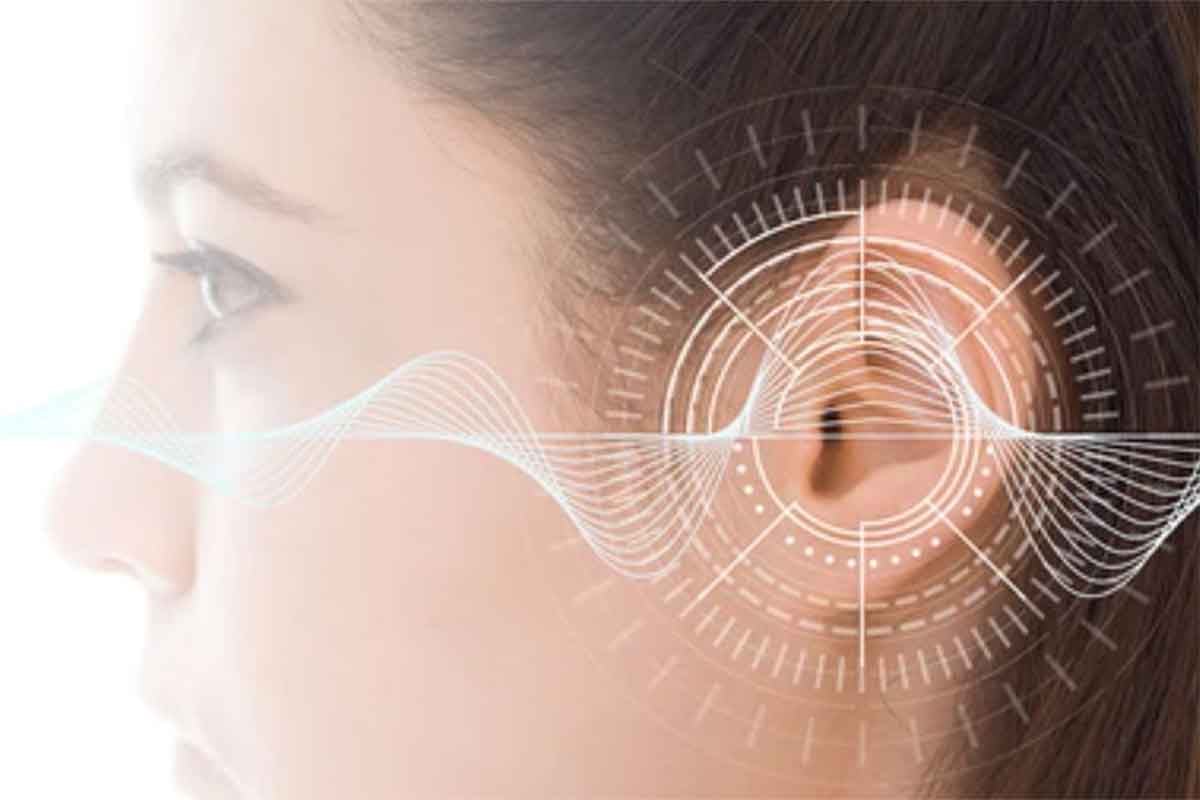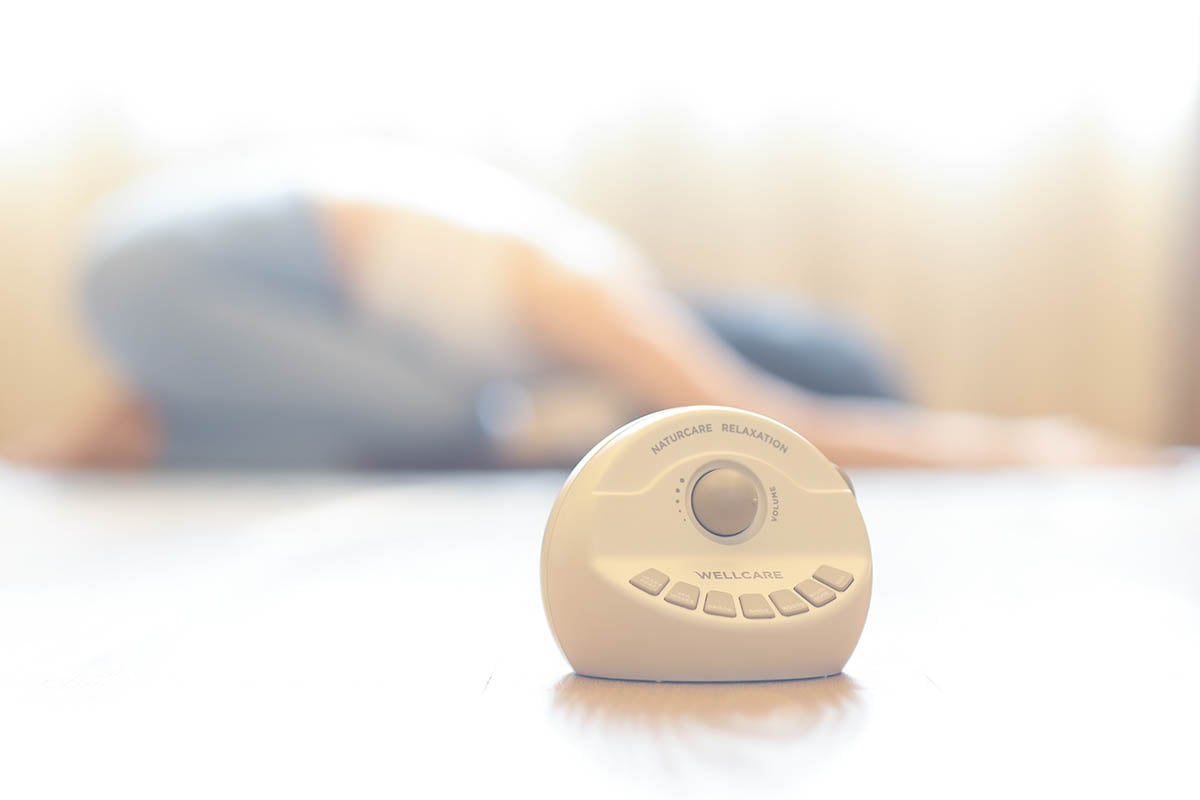
Keanu Reeves is a popular Hollywood actor who has won the hearts of audiences in films spanning decades. All the way from Matrix and Bill & Ted’s excellent adventures to John Wick, Keanu has enjoyed success as well as emerging as a well-loved personality among fans.
It’s no secret that he has overcome personal challenges aplenty to reach where he is today. He revealed in an interview that he suffers from Tinnitus in his left ear. It has been a challenging condition for him to manage with the work he does.
However, over the years he has been able to manage it well, to the point that it doesn’t bother him anymore.
This revelation helps us understand an important aspect of the condition of Tinnitus: it can be managed and improved with the new breakthroughs we experience in medical science.
A study in June 2022 made use of electrical stimulation of the ear to treat Tinnitus. The results showed a whopping 79% improvement rate in Tinnitus symptoms. What’s more, there were no negative side effects of the stimulation on the test subjects.
The treatment was also non-invasive, meaning no surgery was required, making it an ideal option for most of the patients.
Such breakthroughs have the potential to drastically improve the condition of Tinnitus patients and drastically improve their lives.
The important discussion, however, revolves around the question…
Can Tinnitus be cured?
Tinnitus is described as a medical condition where you experience noises, such as ringing in one or both ears. These noises can be low in volume or high, but they are often persistent and uncomfortable for the patient.
Unfortunately, as of now, Tinnitus cannot be completely cured, only managed. You can use medication or devices to make the symptoms less noticeable and uncomfortable to you, the way Keanu has been able to do.
Current research on Tinnitus
Various institutions continue to conduct tireless research on the symptoms and cures for Tinnitus over the years. The best available remedies for the condition are sound therapy and cognitive-behavioral support.
According to an observation by the University Of California Health, in some cases, electrical stimulation has not only improved Tinnitus symptoms but also completely eliminated it with no negative effects for the patient.
|
Moreover, patients such as Keanu Reeves have been able to manage it over the years so that it eventually subsides and isn't a bother anymore. Long-time management with simple techniques has proven to be helpful.
Major Tinnitus breakthroughs
Let's take a look at some of the major Tinnitus breakthroughs we've had through the years and how they can be beneficial to patients:
Bimodal stimulation
Bimodal stimulation refers to the method of providing two different modes of sensory stimulation to a subject at the same time. For Tinnitus treatment, bimodal stimulation stimulates the auditory nervous system as well as the somatosensory neural pathways simultaneously.
Newer studies have also paired sound with the electrical stimulation of somatosensory pathways. Research has shown this approach to reduce the symptoms of Tinnitus. The following are the two most prominent methods of bimodal stimulation:
Michigan Tinnitus device
The Michigan Tinnitus device was developed by Dr. Susan Shore, Ph.D., and her research team at the University of Michigan. The device puts the concept of bimodal simulation to work through a device that is placed on the face and neck.
Headphones or electrodes that use auditory and somatosensory stimulation at the same time are placed on the patient's face and neck. Sound signals are paired with electric pulses and times with the patient's Tinnitus.
These pulses suppress the neurons that cause Tinnitus as well as repair the damaged nerves at the same time. The research was performed on both humans and guinea pigs and results showed that the loudness of Tinnitus decreased upon receiving the treatment.
Lenire by Neuromod
Lenire used the same concept as the Michigan Tinnitus device but makes use of a second device used on the tongue. So, the bimodal stimulation is applied through iPods or over-the-ear headphones and a device placed on the patient's tongue.
The tongue device is meant to stimulate the trigeminal nerve, the nerve responsible for providing sensations to one's face and mouth. The device is already in the European market with a recommended usage time of 30 to 60 minutes daily for 12 weeks to see a difference.
A study was conducted to test the success of the device where 70% of the participants agreed to have benefitted from the use of Lenire. The goal of the device is not to cure Tinnitus but be a supplementary tool to aid other processes.
Non-pharmacological treatments
Many non-pharmacological treatments have also been tested and researched over the years to treat Tinnitus. They include neurostimulation, hypnosis, therapy, and meditation. Patients are more willing to try these options as they are easy to get into and non-invasive to adapt in the long term.
The idea of these processes is to aid the treatment process or help manage the side effects of the methods patients do opt for their Tinnitus. They can even end up being the sole treatment for many patients, especially when the symptoms aren't too severe.
Cognitive behavioral therapy
Cognitive behavioral therapy does not apply to curing or reducing the symptoms of Tinnitus, but to the patient's reaction to it. They involve weekly therapy sessions that usually continue for six to 10 weeks, each session focussing on a specific topic related to Tinnitus.
For example, an overview of Tinnitus in the person's life, stress management, cognitive restructuring, sleep, activity levels, and hygiene. Combined with sound therapy, cognitive behavioral therapy has shown significant improvement for patients.
Sound therapy advancements
Sound therapy is easy to use, non-invasive, and widely accepted by patients for the long term.
The method uses stimulation of sound to make your brain reorganize its context. It can be done with or without masking the Tinnitus. Further, it helps reduce the symptoms and suppress Tinnitus in patients.
In the long run, it can also eliminate the condition completely.

Benefit from sound therapy with the help of a masking device
Wellcare has developed a cutting-edge masking device — Naturecare Sound Relaxation — to help patients relax. The device uses natural and soothing sounds to help you relieve stress and combat the symptoms of Tinnitus.
With this solution, you can choose from seven different sounds that will help you to relax:
- Heartbeats
- Babbling brooks
- Ocean waves
- Bird songs
- Forest sounds
- Rain
- White noise
Designed to perfection with some remarkable features, this wonderful device helps you in relieving stress and enjoy a peaceful night’s sleep.
Mindful meditation
Mindful meditation has emerged as a winning cognitive behavioral therapy for Tinnitus. However, it's important to note that meditation should not be performed in silence as regular meditation often is performed.
Patients need to have background music at a volume that masks their Tinnitus, at least partially. Naturecare Sound Relaxation can be used for this as well. The music can be anything from ambient music to nature sounds. It vastly helps them focus during meditation.
Drug therapies
Drugs cannot cure Tinnitus but they can help reduce the severity of the symptoms. Low doses of anti-anxiety drugs have been studied to reduce Tinnitus over time. Moreover, placing a steroid in the middle ear along with taking an anti-anxiety medicine has been shown to be effective.
Some other research studies have shown a hormone called misoprostol to be helpful for the condition. Lidocaine is a drug that is used to treat abnormal heart rhythms. It has been shown to be effective for Tinnitus when administered intravenously or through the middle ear. However, it's highly risky.

Memantine
Memantine is a medicine used for dementia. It treats memory loss, one of the most prominent symptoms of dementia. This makes it a suitable option to treat Alzheimer's as well. Evidence suggests that memantine can be used to treat inner ear diseases such as Tinnitus.
The study was conducted on animals that exhibited Tinnitus-like behavior due to being exposed to trauma. A dosage of 5 mg/kg was administered to these animals and it drastically reduced the number of animals that showed the symptoms.
This suggests that the drug can treat Tinnitus. The drug has shown an impact on NMDA-induced activities but not on AMPA-induced activities, making it an excellent choice for inner ear diseases and treating their symptoms.
Hair cell regeneration
MIT has long been conducting research about reversing hearing loss by growing hair cells in the year. As the hair cells in the ear are responsible for us being able to hear, a treatment for hearing loss can be a potential treatment for Tinnitus.
Hair loss and Tinnitus are closely related as damage to hair in the ear are the primary cause of hearing loss. The idea is to treat it via hair cell regeneration in the ear. The FX-322 injection is a drug injection administered in the ear to repair the tiny hairs there.
The research is still in the early stages and patients who have received the statement have shown mixed results. The treatment first needs to establish its impact on hearing loss only then it can be tested for Tinnitus.
Injections in the ear
In-the-ear injections have not shown to be very effective cures to treat either the condition of Tinnitus or its symptoms. OTO-313 was an injection being researched to be a cure for Tinnitus. However, it showed no positive impact in any of the criteria it was tested for.
Lidocaine injections with Methylprednisolone Sodium Succinate were tested to cure Tinnitus for 10 days. Patients showed a decrease in Tinnitus symptoms and an improvement in sleep quality. This proved that this combination worked well to combat Tinnitus symptoms.

Future of Tinnitus breakthroughs
We have had some major breakthroughs in Tinnitus cure in recent years, which paints a hopeful picture of the future of Tinnitus breakthroughs. These remedies will be able to help patients and help them overcome Tinnitus the way Keanu has been able to.
It should be noted that the following options are only in the testing stages as of now, but with the positive signs they've shown, it can be expected that they'll yield exceptional results in the near future and tremendously help patients.
Advancements in Neuroscience research
Neuroscience research is mostly focused on identifying the root causes of Tinnitus and how it's generated by the brain. Newer research tracks the generation of Tinnitus with hearing loss and blunt head injuries.
Another research recognizes the affected areas of Tinnitus extend beyond auditory structure and involve higher-level cognitive processing from the brain. The studies rely on detailed Tinnitus profiling such as brain imaging and genetic profiling to devise appropriate treatment plans.
Artificial Intelligence(AI) and Machine Learning(ML)
With the advancements AI and ML have paved way for over the years, research is being done to apply their innovation to treat Tinnitus as well. ML is being actively used to measure the severity of the Tinnitus suffered by a patient accurately.
Whereas AI is being applied to the devices used to combat Tinnitus. The devices are also able to record and categorize the response of the respondents to the treatment more accurately. Furthermore, AI and ML are collectively being studied to develop a prognostic health system to predict patient responses to various Tinnitus therapies.
Personalized treatment approaches
More and more treatment approaches are focusing on personalizing the course of treatment to suit the patient in every way possible. Individualizing the treatment gives health providers more room to try and test approaches and see what works better.
This has been made possible by refining the way patient responses are recorded to be as accurate as possible with genotyping and genomic evaluation.
Hope is still alive for a definite cure
Though there is still much to learn about Tinnitus and its underlying causes, the breakthroughs we’ve experienced, especially in recent years, offer new hope for people like Keanu Reeves who suffer from this condition.
Till then, mindful management remains our best course of action to fight Tinnitus. If you suffer from Tinnitus, make sure to consult a medical professional to help you understand the condition better and overcome it.
Exercise regularly and eat healthily to maintain good health and keep stress at bay.
With Naturecare Sound Relaxation, combat Tinnitus and begin your journey toward a peaceful life today.


.png?width=512&name=united-kingdom%20(1).png)

